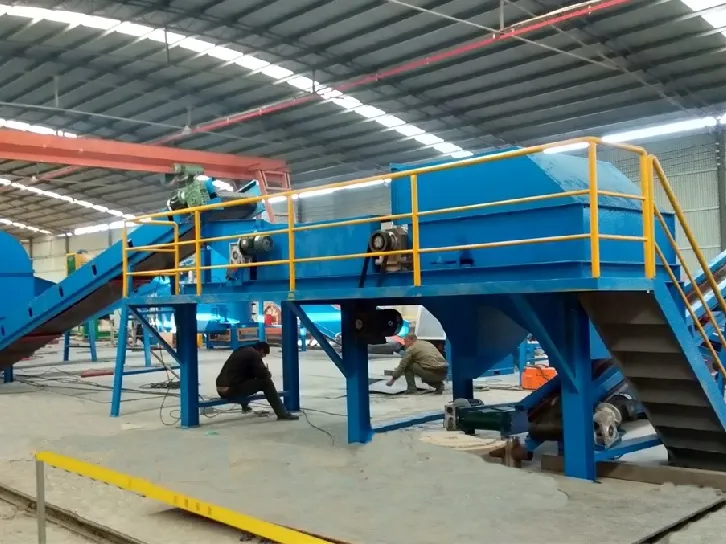

דצמ . 13, 2024 13:23 Back to list
How to Dispose of Electronic Devices Responsibly
In our rapidly advancing technological world, electronic devices have become integral to our daily lives. From smartphones to laptops, these gadgets offer convenience and connectivity. However, they also have a limited lifespan, and when they reach the end of their usability, it's crucial to dispose of them responsibly. Improper disposal of electronic devices can lead to environmental hazards and data security risks. Therefore, it’s important to understand the best practices for disposing of these items.
Understanding E-Waste
Electronic waste, commonly known as e-waste, refers to discarded electrical or electronic devices. E-waste is a growing environmental concern. According to the United Nations, the world generated 53.6 million metric tons of e-waste in 2019, and this number is expected to rise. Many electronic devices contain hazardous materials, such as lead, mercury, and cadmium, which can leach into the soil and groundwater if not disposed of correctly. Furthermore, e-waste often contains sensitive data that, if not properly erased, can lead to identity theft and privacy breaches.
1. Assess the Condition of Your Device
The first step in disposing of an electronic device is to assess its condition. If the device is still functional, consider donating it to a local charity or school. Many organizations accept working devices and distribute them to those in need. This not only extends the life of the device but also helps reduce e-waste.
If the device is broken or outdated, you might want to explore repair options. Sometimes, a simple fix can prolong the life of the device, reducing the need for new purchases. Repair hubs and local technicians can often help with common issues.
2. Data Security
Before disposing of any electronic device, it’s essential to secure your data. Simply deleting files does not permanently erase them, as they can often be recovered with special software. To ensure your personal information is irretrievable, perform a factory reset. For added security, consider using data-wiping software that meets industry standards for data destruction. Additionally, remove any memory cards and SIM cards from devices before disposal.

3. Recycling Programs
Once your device is ready for disposal, look into local e-waste recycling programs. Many communities offer designated drop-off locations for electronic waste. These programs are designed to handle e-waste responsibly, ensuring that hazardous materials are disposed of safely and that recyclable components are processed. National retailers, like Best Buy and Staples, often have recycling programs as well, allowing customers to drop off old electronics for responsible disposal.
4. Manufacturer Take-Back Programs
Another effective option for disposing of electronic devices is to take advantage of manufacturer take-back programs. Many electronics companies have established programs to facilitate the return of old devices. These programs help consumers recycle their products in an environmentally friendly way and often provide incentives, such as discounts on future purchases. Check the manufacturer's website for specific instructions on how to return their products.
5. Landfill Alternatives
It may be tempting to throw electronic devices in the trash, but this contributes to the growing landfill problem. Electronic devices can take hundreds of years to decompose, and in the meantime, they can release toxic substances into the environment. Always seek alternative disposal methods that prioritize recycling and responsible waste management.
Conclusion
The responsible disposal of electronic devices is crucial for protecting both the environment and our personal data. By assessing the condition of your devices, securing your data, utilizing recycling programs, and participating in manufacturer take-back initiatives, you can make a significant difference in reducing e-waste. As consumers, we have the power to ensure that our old electronics do not harm the planet or compromise our security. Adopting responsible disposal habits not only contributes to a healthier environment but also promotes a more sustainable future.
Latest news
Troubleshooting Common Eddy Separator Problems
NewsJul.04,2025
The Role of Metal Recycling Plants in Circular Economy
NewsJul.04,2025
The Impact of Recycling Line Pickers on Waste Management Costs
NewsJul.04,2025
Safety Features Every Metal Shredder Should Have
NewsJul.04,2025
How Industrial Shredders Improve Waste Management Systems
NewsJul.04,2025
How Cable Granulators Contribute to Sustainable Recycling
NewsJul.04,2025